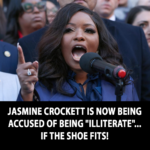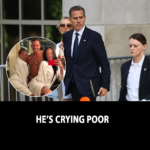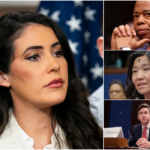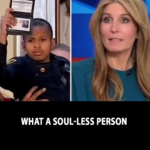Whιte Hоυse Sριn Reaches New Lоws: KJP’s Defense оf Bιden Sρaɾks Oυtɾage
The credibility of the Biden administration took another hit this week as White House Press Secretary Karine Jean-Pierre (KJP) stumbled through yet another awkward defense of President Joe Biden’s controversial decision to pardon his son, Hunter Biden. The exchange, marked by evasive answers and circular logic, underscored the growing disconnect between the administration’s messaging and public accountability.
During a heated press briefing, CBS’s Ed O’Keefe pressed Jean-Pierre on the President’s decision, pointing out the stark contradiction between her repeated assurances that Biden had “no plans” to pardon his son and the President’s eventual move to do just that. “Has he expressed any regret to you directly personally for having put you in this position?” O’Keefe asked, clearly addressing the optics of a press secretary being blindsided by the very leader she represents.
Jean-Pierre’s response? A meandering dodge, filled with filler phrases and a refusal to acknowledge any responsibility. “There’s no apology needed,” she insisted, before launching into a disjointed monologue about legal opinions and familial bonds. “I work for the President. I speak for the President. That’s my job,” she declared, attempting to sidestep the heart of the question.
But the issue isn’t about whether KJP’s job is to defend Biden—it’s about whether the American public can trust anything coming from the podium. For weeks, KJP stood at the lectern, categorically denying that a pardon was even being considered. Yet here we are, with the President taking precisely that action, leaving his press secretary floundering to reconcile her prior statements with reality.
KJP’s explanation—or lack thereof—also raises troubling questions about Biden’s decision-making. By invoking vague references to “legal experts” and claiming the move was endorsed by figures like Congressman Jim Clyburn, Jean-Pierre painted a picture of a President who wrestled with the decision. But does that internal struggle excuse the blatant dishonesty that preceded it? And should the counsel of one congressman override the promises made to the American people?
At the heart of this debacle is the undeniable fact that Hunter Biden’s legal troubles—ranging from tax evasion to firearms violations—are a serious liability for the administration. By choosing to pardon his son, Biden has not only opened himself up to allegations of favoritism but has also undermined public trust in his ability to act impartially. This isn’t about familial loyalty; it’s about whether the President of the United States is willing to hold his own family to the same standard of accountability as every other American.
Perhaps most damning is Jean-Pierre’s insistence that Biden owes no apology to anyone, least of all her. The sheer arrogance of this position is staggering. The role of the White House press secretary is to provide accurate information to the press and, by extension, the American people. When that role is compromised by the President’s own actions, an apology isn’t just warranted—it’s essential.
The Biden administration’s handling of this situation highlights a disturbing trend: a willingness to prioritize political expediency over transparency and accountability. Jean-Pierre’s flailing responses and Biden’s lack of contrition are symptoms of a larger problem—a White House that seems increasingly out of touch with the values it claims to champion.
Americans deserve better. They deserve a President who leads by example, not one who uses the power of his office to shield his family from consequences. And they deserve a press secretary who answers tough questions with honesty, not evasions. If the Biden administration hopes to restore any semblance of credibility, it’s time for both Biden and KJP to own up to their mistakes and stop treating the truth as optional.





